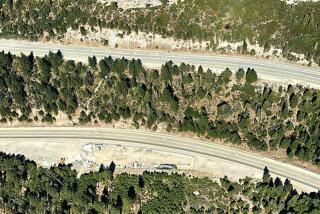Tesla car on Autopilot warned driver 7 times before fatal crash, safety regulator says
A Tesla car in Autopilot mode warned its driver seven times to put his hands on the steering wheel during the 40 minutes before the crash that ended his life last year, a newly released set of reports from the National Transportation Safety Board revealed.
The reports, released this week, contain a cache of details that the federal safety regulator is using in its investigation into the May 2016 crash in Florida that left 40-year-old Joshua Brown dead.
The crash — in which Brown’s Tesla Model S sedan drove under the trailer of a big-rig truck that was making a left turn — drew worldwide attention and raised questions about the safety of Tesla’s semiautonomous Autopilot feature.
Tesla Inc., which is based in Palo Alto and led by Elon Musk, has repeatedly called Autopilot an “assist feature.” It has said that while using Autopilot, drivers must keep their hands on the wheel at all times and be prepared to take over if necessary.
An investigation by a different regulator, the National Highway Traffic Safety Administration, concluded in January that the Autopilot software in Brown’s car did not have any safety defects.
The drive leading up to the crash was 41 minutes long, and Autopilot was in use for 37 of those minutes, according to an NTSB report on data from the car’s vehicle recorder and Tesla’s servers.
Over the course of those 37 minutes, the report said, the car detected hands on the steering wheel for a total of only 25 seconds.
Seven times, the car gave Brown a visual warning to put his hands on the wheel, and six of those visual warnings were accompanied by a chime sound, the report said. After each warning, the car detected hands on the wheel for a period of 1 to 3 seconds.
The last of those warnings took place about six minutes before the crash, the report shows.
Tesla’s Autopilot system uses cameras with 360-degree visibility, sensors, and a forward-facing radar to identify objects and apply the brakes if the car is about to hit something. The feature also keeps the car centered in its lane.
Brown’s car was going 74 miles an hour on a highway when it hit the big rig. The Autopilot apparently failed to distinguish between the white truck and the bright sky behind it.
A witness interviewed by the NTSB said Brown should have seen the truck.
“He wasn’t on top of it, but he should have seen and been able to at least slow down a lot,” said Terrence Mulligan, who was driving behind the truck. “And I just — I assumed he was on a cellphone.”
In September, Tesla announced improvements to Autopilot, including one that disables the Autosteer feature and slowly stops the car if the driver repeatedly ignores warnings to put hands back on the wheel.
The Associated Press was used in compiling this report.






